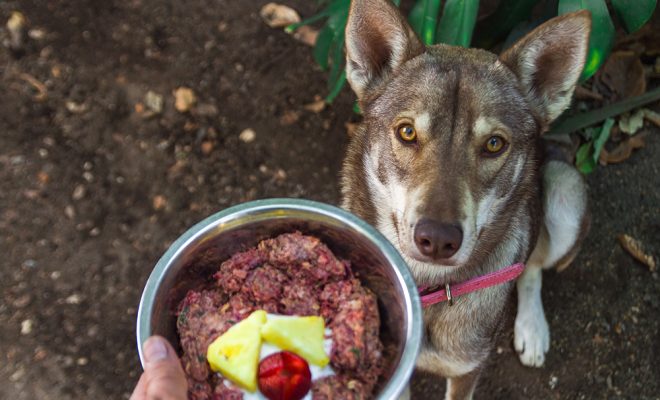Should You Feed Your Dog a Raw Diet?

In recent years, the idea of feeding dogs a raw diet has gained considerable attention within the pet community. Many pet owners have been tempted to switch from traditional pet foods to raw meat-based diets, but it’s crucial to understand the pros and cons of this dietary approach before making a decision.
Proponents of the raw diet, also known as a species-appropriate or biologically appropriate diet, argue that domestic dogs’ digestive systems are similar to their wild ancestors. Such diets typically consist of raw meat, bones, fruits, vegetables, and other whole food ingredients. Advocates believe these food choices cater to dogs’ evolutionary nutritional needs and provide optimal health benefits.
Some potential benefits associated with raw dog diets include:
1. Improved coat quality
2. Increased energy levels
3. Reduced stool volume and odor
4. Better weight management
5. Prevention of certain health issues like allergies
However, while there may be anecdotal evidence from dog owners supporting these claims, scientific research on the efficacy of raw diets remains limited. As a result, many veterinarians and pet experts remain skeptical about such diets.
The major concerns regarding raw dog diets revolve around issues like nutrition balance and potential health risks. Since commercial pet foods undergo quality control processes to ensure balanced nutrition, switching to homemade raw diets makes achieving this balance challenging for pet owners with no background in animal nutrition.
One study found that over half of homemade raw dog diets were deficient in essential nutrients like calcium and phosphorus, possibly leading to health problems over time.
Another critical concern is bacterial contamination in raw food ingredients, particularly those sourced from unreliable suppliers or handled poorly by pet owners. Adequate handling procedures for these ingredients are necessary as bacteria like Salmonella and E. coli in contaminated raw meat can be harmful to both dogs and humans.
In conclusion, determining whether you should put your dog on a raw diet requires research and careful consideration. Consult with your veterinarian to discuss the pros, cons, and potential risks involved, seek recommendations on nutrient balance, and establish the best course of action for your pet’s unique needs.
Remember that every dog is different, so what works for one may not necessarily work for another. Maintaining open communication with your veterinarian during any dietary transitions remains paramount to ensure your dog continues to thrive and enjoy a healthy life.






